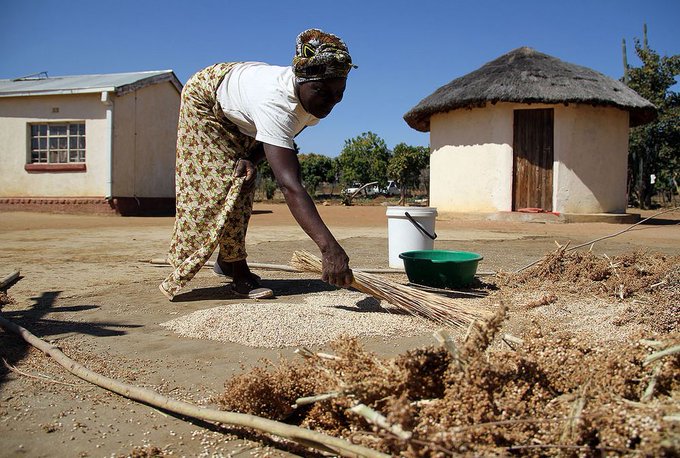By Joyce Mukucha
In line with the Enterprise and Business Development Programme (EBDP) on improving livelihoods of rural women and the the signed SEK 30 million (US$3,6 million) agreement by the government of Swedish and We Effect in 2018, We Effect is set to conduct a household gender assessment.
Since the programme is targeting women, men and youth, a household gender assessment is aimed at establishing power relations at household level for the target group to ensure that all targeted participants enjoy the fruits from their businesses.
It also seeks to inform programming of gender mainstreaming activities.
In a statement, We Effect indicated that a sample of districts will be considered for the assessment.
“The assessment will be both quantitative and qualitative focusing on rights holders in the areas where the partner organisations are implementing the programme. Purpose of the household gender assessment is to identify and assess the gender dimensions at household level. It will also identify the norms, attitudes and values that hinder women and men full participation at household level as well as ensuring that the participation of women and men in identifying how they can improve gender relations at household and community level,”reads the statement.
The GREEN EBDP was developed as a successor programme to the EBDP 2015–2017.This aims for “Improved sustainable livelihoods and food security for rural women and young people” and is expected to result in a doubling of the household income for 67 500 rural women, men and young entrepreneurs
The GREEN EBDP is being implemented in nine districts by 3 partners as follows Jekesa Pfungwa Vulingqondo will implement in Umzingwane, Zaka and Chimanimani; Zimbabwe Women’s Bureau (ZWB) in Goromonzi, Mutare Rural and Gweru and Self Help Development Foundation (SHDF) in Gwanda, Seke and Buhera Districts. Globally, We Effect’s work is guided by the 2017-2021 Global Strategy.
Speaking during the signing ceremony in 2018, Maria Schultz, the We Effect Southern Africa Regional Director said the agreement will lead to the introduction of new innovative approaches that will be used to achieve the desired results. These include developing sustainable food value chains based of FAO’s Sustainable Food Value Chain concept, support to on- and off-farm business development within the green economy.
“The project will lead to the development of enterprise clubs, district commodity and market linkage associations, use of the study circle methodology to generate business ideas and start and or improve a business and use of lead farmer concept. Our aim is on economic empowerment of rural women. I thank the Sweden Embassy with the opportunity to support women,” said Schultz.
Expected outcome results are; productive and decent work for rural women and youth through on and off farm green enterprise development resulting in entrepreneurs individually or in groups /cooperatives starting up or improving their businesses in the areas of agriculture (livestock,horticulture, grain, oilseeds, tubers, apiculture, aquaculture and forestry), renewable energy,rural housing, general trading and services.
We Effect’s Partner Organisations are effectively representing rural entrepreneurs, providing demand-driven services and applyingHuman Rights Based Approaches (HRBA) in their work.
Identification and training of gender “champions” that act as “drivers” for gender equality in the local communities was planned for in the programme.
In 2021, We Effect will be Sweden’s primary player and promoter of development work in support of gender equality within sustainable rural development and adequate housing.
We Effect is an international NGO involved in rural development work in Zimbabwe. It mainly implements its programmes through local member based partner organisations and is currently in partnership with 3 partner organisations to implement the GREEN Enterprise and Business Development Programme (EBDP).
In the year 2021, women (within We Effect’s partner organisations) will have the same rights as men to have access to financial resources and the opportunity to own and control land.
